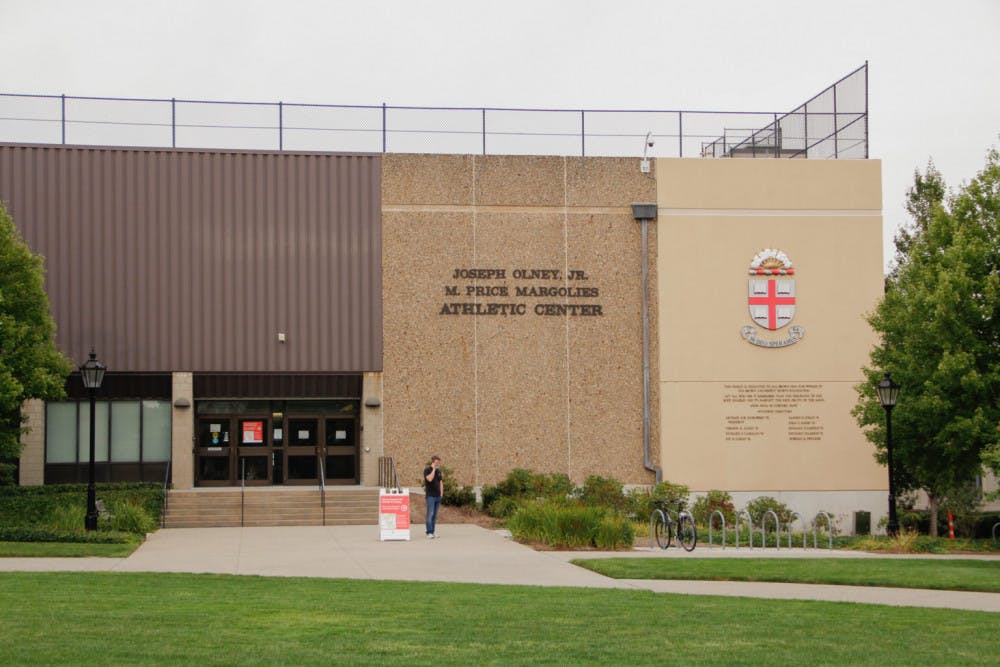Women’s track and field runner Samantha Valentine ’21 had already committed to another university for graduate school when the Ivy League announced Feb. 11 that it would offer graduating fourth-year athletes the opportunity to compete as graduate students at their current institution in the 2021-22 season.
The announcement, Valentine said, was “too little, too late.”
This decision marked an exception to the Ivy League’s long-standing eligibility rules, granting graduating athletes a fifth year of competitive eligibility, The Herald previously reported. The rule waiver is a result of the Ivy League’s cancellation of the fall, winter and spring sports seasons due to the COVID-19 pandemic.
While the NCAA has always allowed athletes to use their four seasons of playing time within a five-year span, the Ivy League typically only lets athletes compete within their four years as undergraduates. This means that athletes cannot normally make up lost playing time due to injury or another emergency, such as the pandemic, unless they enroll in a different school that offers fifth-year eligibility.
This recent rule waiver only applies to current fourth-year seniors and will not be available in future years, The Herald previously reported. Though Brown offers fewer graduate programs than some of its peers in the Ivy League — with 2,600 graduate students compared to Penn’s 12,000, for example — some students are nonetheless excited about the prospect of extending their athletic careers into a fifth year.
“I was honestly over the moon when I read (the announcement),” said women’s rugby player Marion Sellier ’21, who said she was already planning on applying to the Master of Public Affairs program at Brown before the news broke. Because of the rule waiver, Sellier will now be able to play with many of her current teammates next year if she is accepted to the program.
Still, Sellier believes that fifth-year eligibility should be a permanent rule change, similar to other schools in the NCAA, but called the announcement “baby steps.”
When the pandemic led to the cancellation of the spring sports season last year in March 2020, the Ivy League voted against a more expansive measure to grant fifth year eligibility to all spring athletes who had their seasons cut short, rather than just senior athletes, according to Interim Director of Athletics Colin Sullivan. The Division I Council went a different route, providing a sixth year of eligibility to all spring athletes regardless of class year. They later added a sixth year of eligibility for all fall and winter sport athletes.
Within the Ivy League, though, Sullivan said that there has been a “long standing principle that the Ivy League athletics should be centered on an undergraduate experience.”
Other students were puzzled or displeased by the late timing of the announcement. Valentine wishes she had been able to “at least consider” Brown graduate school with news of the waiver in mind.
The announcement came “very late in the process,” said Obi Ifediora ’21, a senior on the men’s track and field team and football team. “When this waiver was announced, several deadlines (for Brown master’s programs) had already passed,” he said, adding that many of his peers had already committed to other graduate schools before the decision.
Losing a year of competition was difficult for Ifediora. “You never really realize what other aspects of your life athletics affects until you're without it,” he said. “It affected my mental health. It affected my motivation.”
Ifediora is now applying to Brown graduate schools in order to continue his athletic career at the University next year. He said it was “very fortunate” that he was still weighing his options when the eligibility decision was announced in mid-February.
Like Sellier, Ifediora felt that the Ivy League should make the rule change permanent, rather than only applying it to current seniors. Non-seniors “lost seasons as well, and they won't be able to use (four years of) eligibility” at Brown, he said.
“It's overdue, and it’s the first step in what seems like an unnecessary series of steps” to hopefully allow all Ivy League athletes fifth-year eligibility. “Nonetheless, Ifediora said, “it is a great opportunity.”
Sullivan believes the involved, multi-step process for Ivy League decisions could be the reason for the late timing of the announcement. The Ivy League Student Athlete Advisory Council brought this limited waiver forward to the Council of Presidents, he said, who ultimately decided to approve it.
“As a department, we're grateful to the Council for extending fifth-year eligibility waiver opportunities to current seniors who have missed much of their athletic experience,” Sullivan wrote in an email to The Herald. He believes that the opportunity for more fourth-year athletes to compete in next year's season “only raises the level of play.”

ADVERTISEMENT




